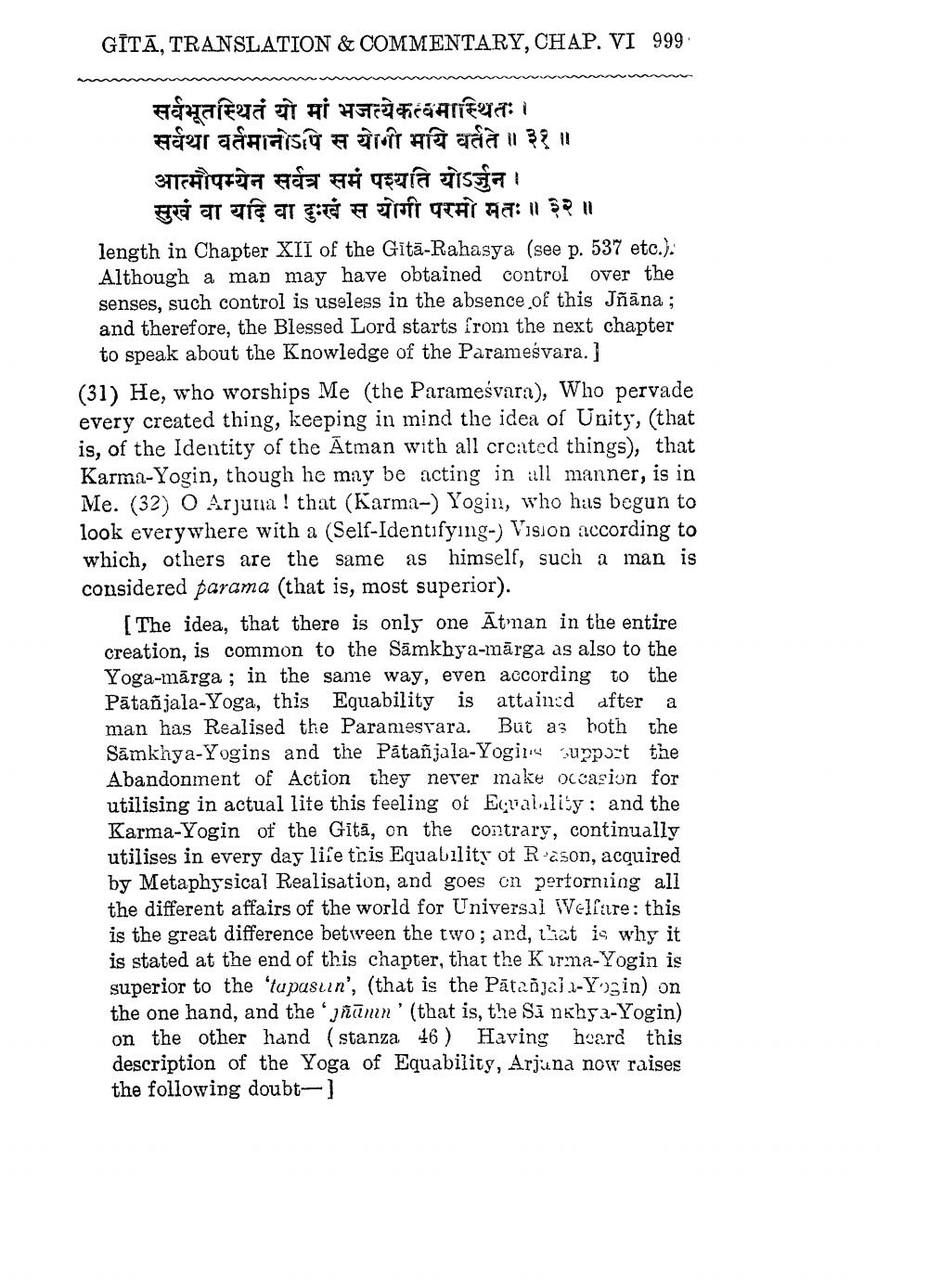________________
GĪTĀ, TRANSLATION & COMMENTARY, CHAP. VI 999
सर्वभूतस्थितं यो मां भजत्येकत्वमास्थितः। सर्वथा वर्तमानोऽपि स योगी मयि वर्तते ॥ ३१ ॥
आत्मौपम्येन सर्वत्र समं पश्यति योऽर्जुन।
सुखं वा यदि वा दुःखं स योगी परमो मतः ॥ ३२ ॥ length in Chapter XII of the Gītā-Rahasya (see p. 537 etc.) Although a man may have obtained control over the senses, such control is useless in the absence of this Jñāna; and therefore, the Blessed Lord starts from the next chapter
to speak about the Knowledge of the Parameśvara. (31) He, who worships Me (the Parameśvara), Who pervade every created thing, keeping in mind the idea of Unity, (that is, of the Identity of the Atman with all created things), that Karma-Yogin, though he may be acting in all manner, is in Me. (32) O Arjuna ! that (Karma-) Yogin, who has begun to look everywhere with a (Self-Identifying-) Vision according to which, others are the same as himself, such a man is considered parama (that is, most superior).
[ The idea, that there is only one Atnan in the entire creation, is common to the Samkhya-mārga as also to the Yoga-mārga ; in the same way, even according to the Patañjala-Yoga, this Equability is attained after a man has Realised the Paramesrara. But as both the Sāmkhya-Yogins and the Patañjala-Yogirs support the Abandonment of Action they never make occasion for utilising in actual lite this feeling of Equallity; and the Karma-Yogin of the Gītā, on the contrary, continually utilises in every day life trois Equability of R'ason, acquired by Metaphysical Realisation, and goes on performing all the different affairs of the world for Universal Welfare: this is the great difference between the two; and, that is why it is stated at the end of this chapter, that the Kurma-Yogin is superior to the 'tupasuin', (that is the Patanjal.-Yogin) on the one hand, and the 'jñümn' (that is, the Sankhya-Yogin) on the other hand (stanza 46 ) Having heard this description of the Yoga of Equability, Arjuna now raises the following doubt--




